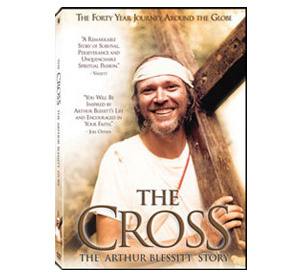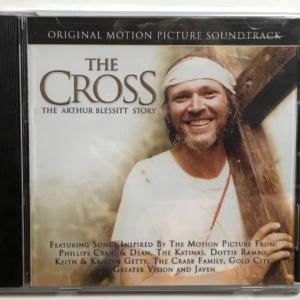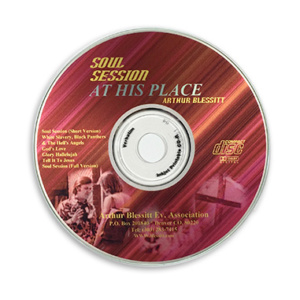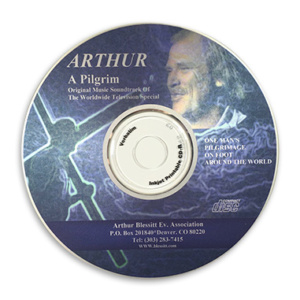THE RUNAWAY GENERATION
Age: 17.
Height: Five feet four inches.
Weight:105 pounds.
Eyes: Gray-green.
Complexion: Fair.
Hair: Light brown with auburn tint.
Identifying marks: Dimple right cheek.
Characteristics: Always neatly dressed, wears eye makeup.
Favorite foods: Pizza, hamburger, French fries, apple pie, and cake.
That could be a capsule portrait of Miss America.
And the girl on the poster is pretty enough to be Miss America.
The poster, one of scores that come to my desk every week from frantic parents, pleads: “A reward of $2,000 will be paid for information leading to the definite location and safe return of our runaway girl.”
Poignantly, the poster adds:
We are a churchgoing family, and our daughter was always in morning and evening worship services and in youth fellowship. She seemed well adjusted. She is quick to smile and has a very charming personality.
She is extremely afraid of lightning and becomes very nervous during a thunderstorm.
Her leaving left us in shock as well as grief, for we had no reason to suspect she would abandon us.
The girl has been missing for more than two months. The parents can only wait and wonder where the daughter is who’s afraid of lighting and thunder, but wasn’t afraid to strike out on her own.
She might be anywhere. Haight-Ashbury. Chicago. New Orleans. Greenwich Village. More than likely the Sunset Boulevard.
It’s certain she’s in one of those concrete jungles, and may God help her.
J. Edgar Hoover, responding to a letter I wrote him about the runaway problem, said that according to his estimate “based upon reports submitted by law enforcement agencies, there were over 170,000 persons under eighteen years of age taken into protective custody as runaways” in 1968.
But the FBI’s figures only skim the surface. An Associated Press story that polled police officials, juvenile authorities, and clergymen around the nation declared: “An estimated half- million youths between twelve and eighteen run away from home every year. The exact figure is unknown because police believe thousands of runaways, particularly boys and older teen-agers, are never reported missing.”
The AP estimate of 500,000 annual runaways, plus who knows how many more, leads to thought provoking statistical conclusions: At least one in every hundred American kids is chucking home and hearth. Together their number is larger than the population of Alaska, Nevada, Vermont, or Wyoming. And the disappearance of the runaways leaves another million people in trauma their mothers and fathers.
The runaway is yet another middle-class phenomenon, the middle class that is the alleged guardian of bedrock American values.
“Favorite foods: Pizza, hamburger, French fries, apple pie, and cake,” the poster said. “We are a churchgoing family, and our daughter was always in morning and evening worship services and in youth fellowship.”
It’s apparent that apple pie and church attendance are no longer sufficient “values” to hold many young people.
“She seemed well adjusted.”
It appears she wasn’t at all well adjusted.
So young, so inexperienced, what drives them from home so soon?
They leave for a combination of reasons, everything from bad grades to a vague search for something better. But the experience of ministering to thousands of runaways more than six hundred of whom we have sent back highlights several inescapable facts.
The overwhelming reason most kids take off is because of their parents. Middle class mothers and fathers busy getting and spending must shoulder the blame for the lack of meaningful communication. They are too preoccupied, indifferent, uncaring, and insensitive to handle the needs and problems of their children. Parents will tear to shreds a psychedelic poster a young boy hangs on his wall and smash a daughter’s Beatles’ record. Then, instead of leading them to solid values, they’ll lambast the “long-haired hippie Communists.”
The clash of cultures and polarization between generations is at least bearable for most kids. They don’t skip because of that in most cases. What does turn them off is the constant arguments, hassling, recriminations, and tensions between their parents. The atmosphere in the home is poisoned, and so as soon as they are able to they split. Who needs the hassle?
Significantly, I have never met a single runaway from a home that was truly Christ-centered. In Ephesians 6:1 Paul commanded children nearly two thousand years ago to “obey your parents.” But he said “obey your parents in the Lord; for this is right.”
How can a kid obey his parents in the Lord when the Lord is a stranger in his home?
Paul added in Ephesians 6:4, “And, ye fathers, provoke not your children to wrath, but bring them up in the nurture and admonition of the Lord.”
There lies the solution to splintered homes. That’s where it’s really at.
Perfunctory church attendance on Sunday mornings isn’t enough. I’ve had dozens of kids tell me their folks fought bitterly during the drive to church. The parents arrive at their pew, they’re properly humble and attentive while the minister raps out his sermon, they are generous when the offering is taken, then on the ride home they’re at it again hammer and tongs.
The kids see the phoniness and insincerity. They reject not only their parents but what passes for religion. I don’t blame them for wanting something better.
The terrible problem, however, is that when they run away what they encounter is infinitely more wretched than what they’ve left behind.
These kids are trapped. They’re virtually in the position of a convicted murderer in Utah who is given the choice of death by hanging or a firing squad.
The Sunset Boulevard probably and tragically gets the lion’s share of the nation’s runaways.
But the Boulevard is a bummer from beginning to end.
It’s a bad trip. There’s nothing groovy or cool about it.
Don’t come. Skip the scene!
No matter how tough it is at home, the Boulevard is worse.
It’s almost impossible for a teen-age boy to support himself on the Boulevard. Drugs, despair, and often death are what he’s running to. For a runaway girl, the scene is totally impossible. Not only drugs, but hunger, panhandling, and white slavery are waiting for her.
Runaway girls are the cheapest commodity on the Boulevard. They are treated with less concern and dignity than cattle on the way to a slaughterhouse. A runaway girl is fortunate if she’s busted and sent home because if she stays loose the barracudas are lying in wait.
“You look like a cool chick. Need a place to crash?”
“Yeah.”
The crash pad, swarming with bodies, is her first taste of the hippie life.
The hippie trip sounds bad but it’s better than some of the other possibilities. The really tragic runaway girl is the one who is scooped up and enticed to a room where a dude mainlines her with heroin for a couple of days. When she finally comes off her trip, she’s hooked. “You sleep with the next guy I bring in or you don’t get another fix.” This practice perpetuates the Boulevard’s reputation as the largest white slavery recruiting ground in America. But as an addict her looks fade fast and she’s cast aside quickly.
No matter. The Greyhound buses bring in a fresh supply of young, eager newcomers every day.
At His Place I can spot runaways as easily as an Indiana farmer locates his red barn. They are usually the last to leave timid, frightened, uncertain, no place to crash.
It is absolutely crucial to get runaways to return home no later than three weeks after they hit the Boulevard. After that time they usually become hooked to sin like a trout to a bait line.
Karen, a doe-eyed teenager, was hovering around the coffee pot one night while we were closing.
She burst into tears when I asked where her parents lived.
I drove her home. Home was a three bedroom house adjoining one of Southern California’s best known churches. Home was where her father lived, one of the most prominent ministers on the West Coast.
Karen had her first decent meal since leaving two weeks before. She then was ushered to bed by her still uncomprehending mother. “Karen, whatever possessed you . . . ?”
I sat in the minister’s cozy study while he unburdened himself.
“Do you know what we told our congregation and friends? We said Karen was on a little vacation out of town, visiting friends.
“I was so ashamed.
“I’m a minister, a servant of God. I’ve tried to be a good man, a good father.
“But I realize now that while I was trying to save the world, I spent none of my time with my own daughter. I gave her nothing of myself.
“I would sit in this room by the hour writing my sermons, telling others how to live.
“And all the while I didn’t know how to live myself and function as a parent.
“Can you believe that I can’t count the times I’ve counseled other parents about their runaway sons and daughters?
“God has sent us a warning, I intend to heed it.
“I’m going to have the time of my life with Karen. She’s seventeen years old and I know practically nothing about her.
“I never thought,” he concluded as do all parents of runaways, “it could happen to us.”
That’s what it was like in a minister’s hom.
What is it like in homes where the name of God is never uttered except as a prefix to a curse?
Unbelievable.
Brown foothills climb and weave above Burbank, California, a city of some one hundred thousand inhabitants. Lockheed guns the local economy, and Frank’s mother and father both worked at the sprawling, ugly plant of the aircraft company.
Frank was down from an LSD trip one evening at His Place when he confided that he was a runaway.
“Let me take you home.”
“No, it’s terrible in that house.”
“Man, there’s no other way. Come on, let’s surprise your folks.”
In thirty minutes we were at the front door of Frank’s neat stucco house. The time was four-thirty in the morning.
The printable part of the tirade Frank’s mother spewed at me after barely taking note of her son, who’d been gone four days, was, “Don’t you realize we have to get up early? What are you doing here this time of night? Couldn’t you bring him back in the morning? We’re hard working people; we don’t have time to sit around like all you rich, lazy preachers. We work for our money.”
She cuffed her son across the side of his head. He staggered back. She went after him and dragged him by his hair into the house.
Then she slammed the door in my face.
I had led Frank to the Lord an hour before and convinced him over his strenuous objections to return home. “I’ll talk with your folks. I’m sure we can work things out. I know your mother is worried about you.”
I’ve never seen Frank again, I would barely have the heart to face him. What could I say after encouraging him to go back to that demon mother?
It occurred to me as I left Burbank that even the fiercest animals in the jungle show affection for and protect their young.
At thirteen Evelyn found life unbearable with her parents. She was crouching in a corner at His Place when I came over. At first she denied she was a runaway, then in tears admitted it.
I witnessed to her for several hours and she came to the Lord.
“My mother hates me,” she said afterward, “she’s told me a hundred times she wishes I’d never been born.”
“What about your dad?”
“He’s my stepfather. He never says anything.”
She finally agreed to let me call her home.
When her parents walked into my office, the mother looked at her daughter.
I called Dale and asked him to hold Evelyn outside while I talked privately with her parents.
“How could you say that to your daughter?”
“That girl is driving me crazy. I’m a nervous wreck. I hate her.”
“Please shut up or leave,” I told her. “No wonder the girl ran away. You’ve told her so often you hate her she believes it.”
“I want her to believe it because I hate her with all my soul.”
“We could spend hours discussing the condition of your soul.”
The woman looked at me with contempt.
“I’ve advised your daughter to go home.”
“I don’t want her back.”
“Do you want me to call the authorities and have the state assume custody?”
The stepfather spoke for the first time. “Let’s take her,” he said without enthusiasm.
“Oh, all right, but nobody knows how much that girl has hurt me. I don’t know how I’m going to put up with her.”
“Ma’am, I would like to share Christ with you before you take your daughter home.”
She got up from her chair and let the venom out. “What kind of a lousy minister are you? What do you know about Christ? If there wasn’t a foul church like yours here on the Boulevard my daughter would have no place to run to. You and your dirty hippies. The country is going to hell and you’re helping. I hate you and everything you stand for.”
She threw open the door and grabbed Evelyn, the stepfather following docilely.
I shuddered at the thought of the girl’s future.
A few months later I was with the His Place staff for a two-day retreat at Forest Home, a Presbyterian mountain camp outside Los Angeles.
O. J. was at the piano and all of us were singing.
I felt a pair of arms curl around my neck.
I turned and saw Evelyn, her face wreathed in smiles.
“How is it at home?”
“Just like it’s always been. But I’ve been going regularly to BelAir Presbyterian Church and I’m happy living for Christ.”
Later Evelyn brought a large group of kids with her to my cabin. The staff and I witnessed to them, and all gave their hearts to Christ.
Through Christ Evelyn had surmounted the environment of her home. Her mother still treats her brutally, but she’s living in the sunshine of Heaven.
It is that kind of hope that a rose of Sharon can survive, grow and blossom from bad seed that gives me the courage to urge kids to return to homes of gall and wormwood.
Larry was sixteen, tall for his age, well dressed, no hippie. In his voice was the sound of the Oklahoma prairie as we rapped one night at His Place for more than an hour. He was uptight and seemed completely indifferent when I asked him to give his life to Christ.
With no place to crash, he was still there at closing. I drove him to Norm’s restaurant below Sunset Boulevard.
We ate breakfast together, but Larry wouldn’t tell me why he left home.
He spent the remainder of the night at the restaurant and came back to His Place the next evening.
“I believe you’re sincere. I want to be saved.”
After bringing him to Christ, he told me the obscene circumstances that had led him to the Boulevard.
His father, a $65,000-a-year vice-president of a helicopter manufacturing company, had raped Larry’s fourteen-year-old sister!
Wild with outrage, Larry knew it was either leave home or kill his father.
Jerry, seventeen years old with a straight haircut and sharp, expensive clothes, walked into His Place one day and introduced himself. He was a wonderfully saved Christian, yet be had run away.
“I left,” he explained, “because my mother and dad don’t need me. We have a home you wouldn’t believe. Big and beautiful, but always filled with people. Parties almost every night. My folks ask me to leave the house whenever they give a party.
“They think I don’t know what goes on. It’s one big party after another. The upper crust of our city, politicians, lawyers, doctors, corporation big-shots. Everybody gets drunk and every man tries to make out with somebody else’s wife. From what I’ve seen, they don’t have to try very hard.
“It made me ill. I couldn’t stand any more of it.
“I came out here to be a hippie. I wanted to get away from the money and the hassle.”
But Jerry had been on the Boulevard a couple of weeks and was just as nauseated by the hippie scene once he saw it for the bummer it was.
“I’m going back,” be said. “Becoming a hippie isn’t going to solve my problems. The church is the only thing I have at home. I’ll try to talk sense to my parents and plead with them to change their lives and accept Christ.”
I’ve never learned if Jerry’s parents’” his mother was a Philadelphia Main Line socialite and his father a venerated Pennsylvania superior court judge became born again. I have prayed often for them and for Jerry.
I was preaching at a church in Long Beach, California, and after my sermon I gave the customary invitation. Alfie, a darling sixteen-year-old girl, was one of several dozen who came forward to live for Christ.
When all the others had left the counseling room, Alfie lingered. With a great deal of embarrassment she told me that she had been released from Juvenile Hall the day before after being busted as a runaway.
Alfie’s parents had seen my picture in the local paper, and her father insisted she come to hear me.
“So I hated you even before you got up to preach.”
Alfie was a habitual runaway. She’d split at least a dozen times, and had been picked up on each occasion.
“My dad’s a policeman and when he comes home he’s still a policeman. He slaps the tar out of me almost every day. All I have to do is say something he doesn’t agree with and pow! He treats me like I was a hood in a line-up.
“He’s had a girl friend for over a year. My mother knows. She and Daddy never sleep together. Now Mother has her own boy friends.
“The happiest time of my life is when I’m with a bunch of kids and we’re all stoned. I first started popping pills from those I found in my folks’ medicine cabinet.
“I rode with the Hell’s Angels for a couple of months, but it was a bad scene, so I took off.
“Every time I run away they catch me sooner or later. It’s always the same. They put me in Juvenile Hall but since my dad’s a policeman he goes and talks to them and they let me out.”
Alfie’s folks were waiting for her in the vestibule of the church.
Alfie’s folks were waiting for her in the vestibule of the church.
“Maybe you can do something with her. Can she stay with you for a while?” her father asked.
Alfie had the baby and married her boy friend.
They have their own small house now. It is a Christian home, and the future looks rosy.
Alfie’s father, an ex-Baptist preacher turned policeman, was grateful for the change in his daughter. He said he wanted to come down to our Halfway House and talk to the kids about law enforcement.
“Our kids know quite a bit about law enforcement,” I said.
“What they need is more Bible study and prayer to keep them strong for the Lord.”
The face of Alfie’s father spread in a mile-wide grin. “That gives me an idea. I can still deliver a pretty good sermon. I’ll come down and preach.”
“About what?”
Answered the man who used his daughter as a punching bag and lived in sin with another woman: “I want to preach to those kids on a subject very close to my heart, ‘How to Live the Perfect Christian Life.”‘









